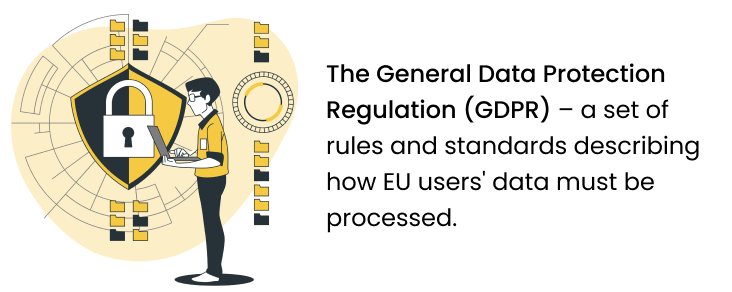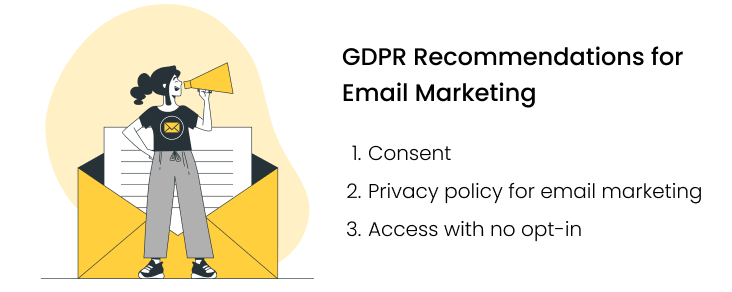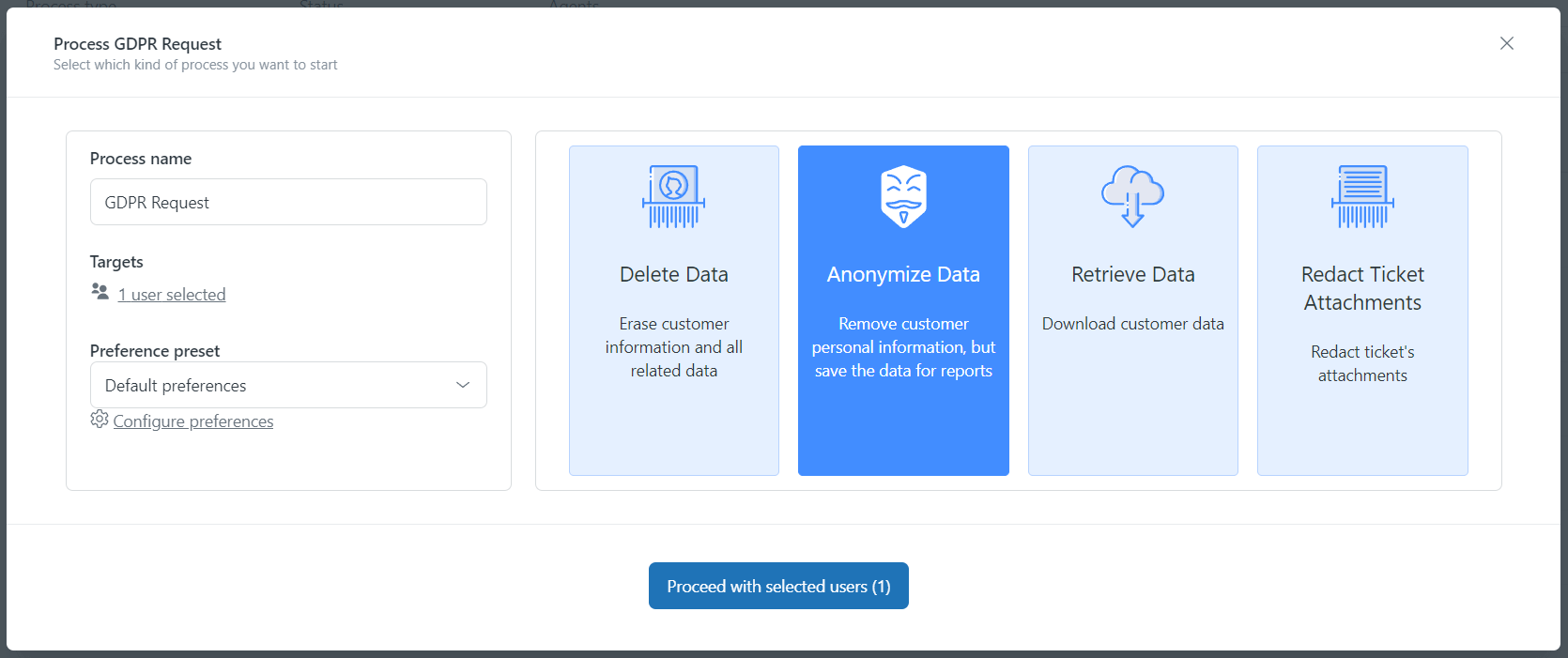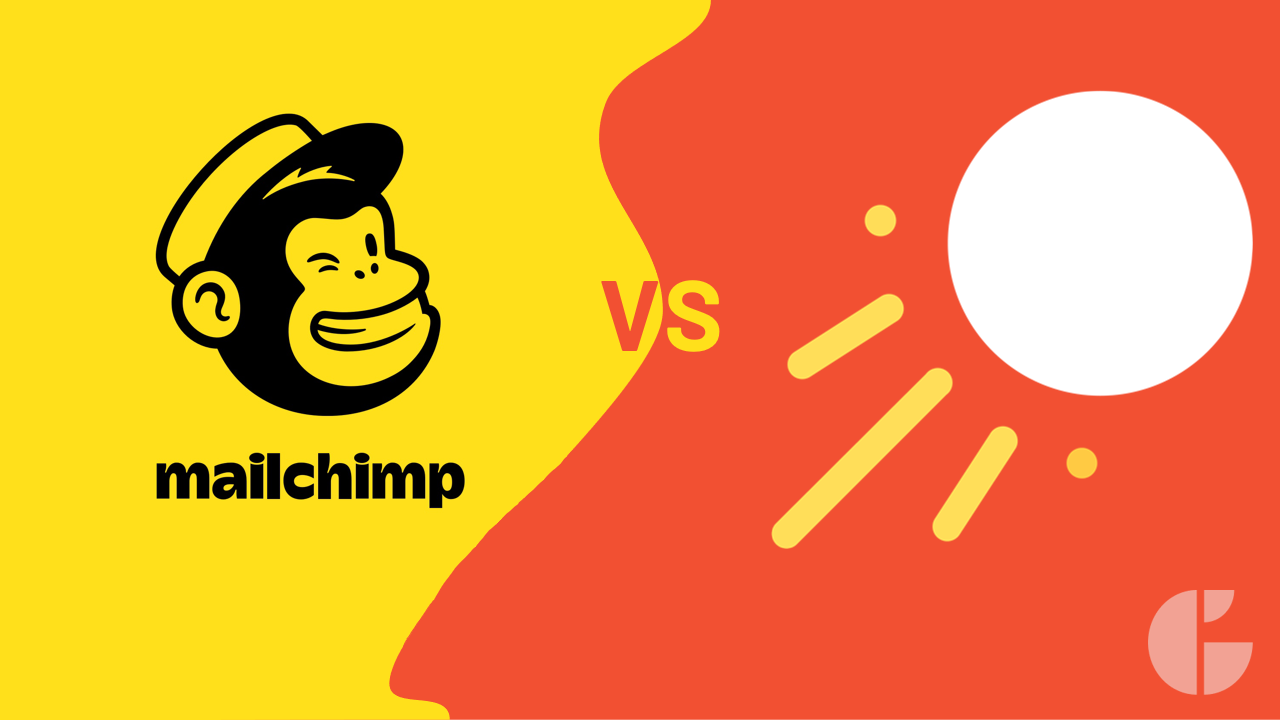Email has become an essential tool in today's email marketing, helping to engage with customers effectively.
However, as email marketers, you must know that managing an email marketing strategy means collecting users' email addresses and, thus, their personal data. This process must be done following specific privacy laws. For example, if your main target audience is located in the EU, your email marketing efforts must follow GDPR compliance.
In our article, we will introduce you to what exactly GDPR is and the main rules for GDPR email marketing. We also will give you recommendations on how to make your email marketing GDPR-compliant with ease.
But first, let's define what the GDPR is.
What is the GDPR?
The General Data Protection Regulation, or GDPR, is a set of rules and standards describing how EU users' data must be processed. And it doesn't matter whether your business is outside the European Union. So, if you consider EU citizens as your potential customers, you have to make your business GDPR-compliant.
Adding the GDPR best practices to your GDPR email marketing will positively influence the click-through and engagement rates. On the contrary, violating these rules will result in not only losing your subscribers but also severe fines from the European Commission.

What does GDPR Email Marketing Compliance mean?
The GDPR's main rule is about receiving customers' consent before collecting their data. For email marketing, it means requiring to obtain users' consent to send marketing emails to individuals. This consent must be informed, freely given, and provided by an explicit user's affirmative action.
Usually, to obtain such permission, companies use a checkbox on their websites asking whether users want to receive marketing emails. By selecting 'Yes,' users confirm their eagerness to receive newsletters from your company. Thus, you can start collecting their personal data lawfully.
Importance of GDPR Email Compliance
GDPR compliance for email marketing is crucial not only for legal adherence but also for safeguarding customer trust. With increasing scrutiny on how personal data is managed, businesses must ensure they follow GDPR regulations to protect users' privacy and avoid hefty fines.
Why should your Email Marketing be GDPR Compliant?
Lately, there have been significant abuses of customers' personal data, which is why the European Commission wants to keep track of how businesses process users' data today. These companies mainly collect customers' personal data without stating the reason for their collection. Even if it is not made for malicious purposes, such companies neglect security and technical measures so that the data can be easily compromised or stolen by online thieves.
So, if you are targeting not only the local market but also want to expand your business to EU customers, you must adhere to the rules stated in the GDPR. If not, you will likely be fined with severe penalties for violating the service agreement. What is more, your reputation will be ruined, and it won't get better anytime soon.
How does GDPR affect Email Marketing?
As we have already told you, conducting compliant email marketing under GDPR means getting consent from users to send them marketing emails. This practice requires some extra steps from your side like:
- Opt-in permission rules for your new customers;
- Storage of proof of consent;
- Collection of the minimum personal data;
- Legal bases for collecting users' personal data lawfully;
- Ability to quickly remove customers' information if asked by a customer.
However, GDPR also affects how you track and analyze email marketing metrics. Email engagement data—like open rates and click-through rates—are vital for optimizing your marketing campaigns, but tracking this information for EU customers must be handled with care under GDPR regulations. Fortunately, there are tools designed to help businesses maintain this balance between compliance and performance.
One such tool is the Email Tracking app for Zendesk, which enables you to monitor the performance of your email campaigns within Zendesk. With this app, you can see when and how often your emails are opened, gaining valuable insights into your customer engagement.
What makes the Email Tracking app especially useful in a GDPR-compliant marketing strategy is its flexibility. You can easily turn off email tracking for EU residents to ensure that their data privacy is respected and fully compliant with GDPR. This feature helps you adhere to regulations while still benefiting from insightful tracking data for other audiences.
So, do all these rules make email marketing very complex and challenging for marketers who want to target the EU? Not really. You must understand that the GDPR doesn't ban sending emails. Therefore, conducting efficient email marketing activities is still possible by following some regulations we will describe in the next chapters.
How has GDPR impacted marketing strategies?
The GDPR is all about data protection for users. Users have the right to know which type of data is collected, when, and why, and to request to delete their information if they do not want to share it any longer. The GDPR also requires businesses to immediately report any data breach they experience and the data that has been compromised.
Marketing departments have to pay close attention to following the GDPR rules as they directly influence email marketing campaigns as well as the rest of marketing activities. This, in turn, makes them fully reconsider marketing initiatives that involve users' personal data. To become GDPR-compliant, you now have to:
- Make all your marketing efforts transparent, clear, and accessible to your customers in the detailed Data Protection Policy;
- Provide customers with a genuine choice of giving consent freely;
- Subject all your customers from the email list to opt-in or double opt-in process to act as GDPR laws require.
In digital marketing, personal data remains a primary tool, and the GDPR has enhanced users' data protection rights. However, the GDPR and email marketing have introduced more stringent requirements, making digital marketing more demanding as businesses must adjust their strategies to stay compliant.
Key GDPR Recommendations for Email Marketing
There are specific GDPR recommendations that must be followed in email marketing to ensure robust email data protection. Here, we have collected some of the most crucial ones:
- Consent: you have to receive informed consent from each user before subscription. By informed, we mean informing users that they consent to receive marketing emails through their positive actions.
- Privacy policy for email marketing: if you send emails, you must have an email marketing Privacy policy where you inform users what data you collect and how you will use this data. The Privacy policy should be on your website, and remember to include the link in your opt-in form.
- Access with no opt-in: you can't prohibit access to your content if the users disagree with the subscription, as they can freely give their consent. You can't make it look like it is a mandatory step.

GDPR Email Marketing Best Practices
Now that you know the reasons why you need to make your email marketing GDPR compliant, here are some mandatory steps that you have to take to ensure your email marketing practices are up to standard:
Right opt-in forms
Having a clear opt-in form is a must for GDPR. What does this mean? It means that you can't create automatic opt-in in your forms with a preselected checkbox. The user is the only one who makes a choice. Besides, it is not enough to ensure that your opt-in forms don't have a positive default selection. You also have to have a clear and specific statement of consent.
Consent records
You must store a record of proof that you obtained consent from users. This record must include user identity, the date when it was given, and what the user has consented to. Besides, it is necessary to indicate the methods you use to obtain the consent, the information on whether the user who gave consent later withdrew it, and the legal basis of receiving permission from a user. Using a consent management platform such as Usercentrics can help automate the collection, documentation, and secure storage of these records. Such tools also assist in helping your consent practices remain compliant with privacy regulations and provide users with transparent options to manage their preferences.
Content requirements
The GDPR's primary goal is to protect users. That is why you must be honest and clear about the sender's identity, indicating your actual company address and the nature of the content sent.
There are also some requirements for the content of your email. For example, your emails must clearly state the nature of your message, disclose their purpose, and indicate whether they are promotional emails or not. Besides, it must include the unsubscribe link, which is visible to the readers so they can easily unsubscribe if they do not want to receive emails anymore (we will talk more about it later).
Another essential requirement is that your email must contain only the content to which users have given their consent. For example, if the user agrees to receive emails about your product, it would be a severe violation of GDPR to send them emails with information about third-party products.
If you want to send different types of emails, you must receive consent for each of them. And no, that doesn't mean you have to waste time creating numerous opt-ins. Instead, you can add multiple checkboxes to each email type and let users select which they want.
Third-party companies or apps
Even if third-party companies deal with your email marketing or you use some apps for this purpose, you still are responsible for complying with GDPR as the data owner. Of course, they will also have some legal obligations, but they won't be alone in this. So, do not stand aside and let other companies do what they want with your email marketing. You should oversee their activities to ensure they adhere to GDPR email security standards.
Easy and immediate unsubscription
Under GDPR, you must give potential customers an option to withdraw their consent by adding an unsubscribe link to your email. Once the user asks to withdraw their consent, you have 30 days to fulfill it.
However, if your customers continue receiving emails, no matter if they ask to withdraw their consent one day or thirty days ago, they won't be pleased with them. So, you have to unsubscribe your users as soon as possible. This way, you will avoid frustration and show respect to your users.
Take advantage of the GDPR email compliance apps
Yes, aligning with all the regulations is difficult, so even professionals can fail. But do not panic! If you are worried about staying GDPR-compliant, you can always take advantage of the specialized app like GDPR Compliance by GrowthDot for the Zendesk help desk.
This helpful app lets you quickly delete users' personal data according to the EU's and Californian privacy regulations, leaving only the data needed for business reports. So, you do not need to constantly check whether you adhere to GDPR regulations, as the app will help you out.

GDPR and Email Marketing: Conclusion
GDPR is a set of strict regulations on how you must behave with your customers through email marketing, and your main aim is to adhere to those rules. It would be best if you simply stayed careful with the ways you collect and store personal data from EU residents, or you might get fined. Using GDPR, the European Commission aims to make websites care about email security and data protection of European users.
FAQs
What are the key principles of GDPR in email marketing?
The key principles include obtaining explicit consent, providing transparency about data use, ensuring data accuracy, and allowing users to withdraw their consent easily. GDPR emphasizes the protection of personal data and requires clear communication about how it is used.
What is explicit consent, and how do I obtain it for email marketing?
Explicit consent in GDPR email marketing means that users actively agree to receive marketing emails by taking a straightforward action, such as checking a box on an opt-in form. Ensure that your opt-in forms do not have preselected options and clearly state what users consent to.
How can I ensure my email marketing is GDPR-compliant?
Ensure GDPR compliance by using clear opt-in forms, maintaining consent records, being transparent about your email content, and providing easy options for users to unsubscribe. Additionally, verify that any third-party services you use are also compliant.
How does GDPR affect the tracking of email marketing metrics?
GDPR affects tracking by requiring consent to collect and process personal data. You must ensure that any tracking activities are disclosed to users and that data collection practices comply with GDPR regulations.
What role does encryption play in GDPR-compliant email marketing?
GDPR email encryption helps protect personal data from unauthorized access. Encrypting email communications ensures user data is secure during transmission and aligns with GDPR's data protection requirements.







